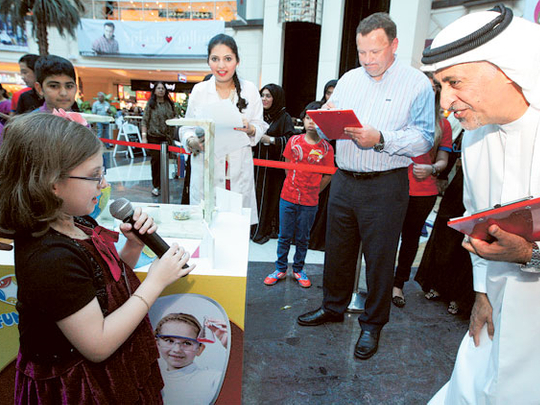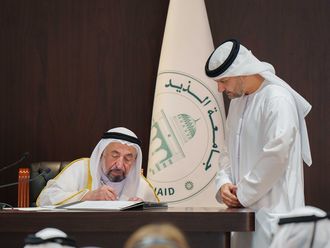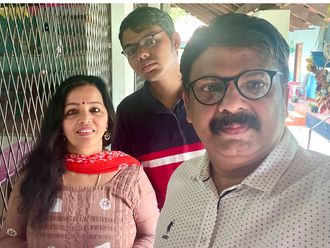
Dubai: Eight-year old Ruchita Lalla won herself and family the grand prize of the “Little Inventors 2013” for her creation of an innovative home cleaning kit.
The winners of the first edition of “Little Inventors 2013”, organised by Fun City, one of the largest family entertainment centres in the region were announced on Friday, at Oasis Centre.
Ruchita was the top winner across all the categories and was awarded a family visit -for up to six members- to the world renowned museum Cité Des Sciences in Paris, while the runner ups in each category received trophies. All the other children were awarded participation certificates.
The innovation competition was launched in April and aimed to help in children’s development and encourage them to think out of the box by engaging them in scientific activities outside their school environment.
Parents and teachers had registered their children or class pupils in an individual capacity or in groups, when the competition was announced in April. Registration was divided into three categories and judged as per age. There was the six to eight years category, the eight to ten years category and the 10-12 years category.
The entries were judged by Dr Eisa Bastaki, Emirati scientist and President of Dubai University, Amnah Hussain, a Counselling Psychologist and Parenting Expert to Fun City and Silvio Liedtke, Chief Operating Officer of Landmark Leisure.
There were some 200 registrations, and from them, 40 submitted their projects and were competing for the title on Friday.
Fourteen of the participants were shortlisted and presented their inventions to the audience.
Bastaki said that being part of the judging committees at children innovation competitions, such as this, brings him great pleasure, as he said that developing these children’s spirit of innovation will make them the bases for a knowledge based economy.
“To start from the age of six or seven is a great idea and we should continue doing this,” Bastaki said. “We do not expect every child who grows up and graduates to become an innovator, but there is a percentage that will, and that is why we should start from this early age — if out of the 40 children today, one of them becomes an inventor - then we have done our job.”
He added that such a competition can be an incentive to those kids to think outside the box.
The evaluation of the entries was done on the basis of quality of innovation, presentation, utility and feasibility to integrate it into everyday usage, environment-friendliness of the creation and lastly the child’s level of independence in creating the entry.
Bastaki explained that while those are not “real inventions, but for a child, it is an invention, but for us we have seen it before, but for the child who did not know anything about it – it is.”
He added that it is important that parents let their children work on their projects on their own, so they would reap the benefits of the process.












